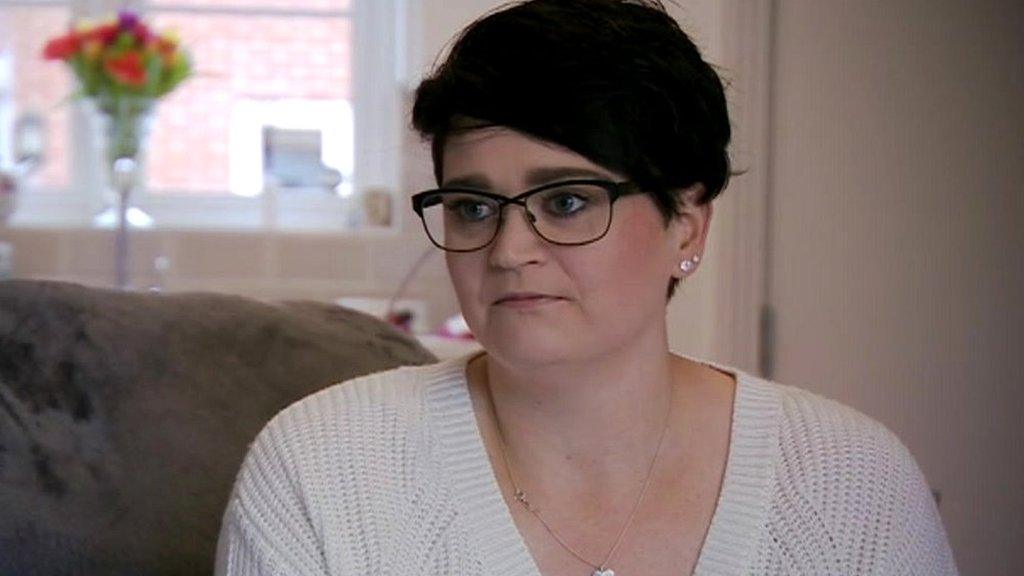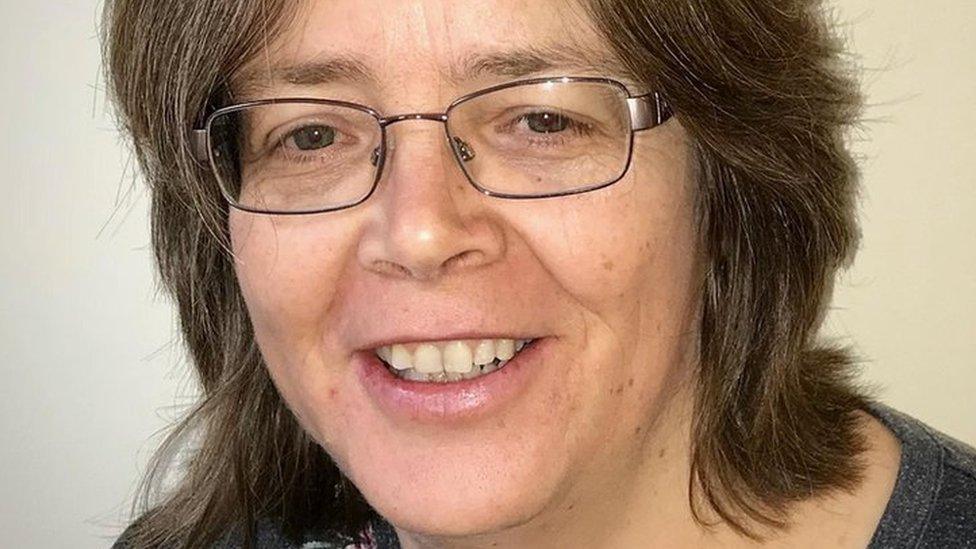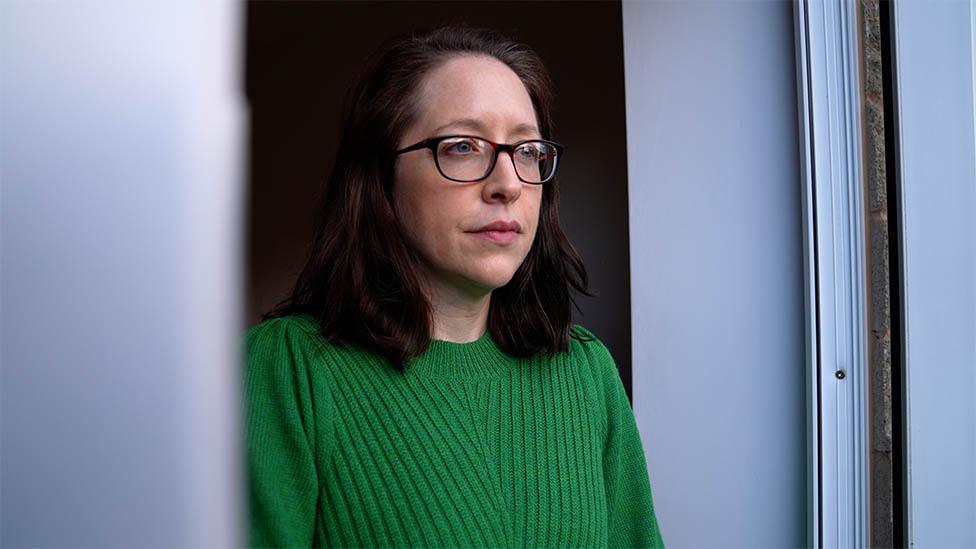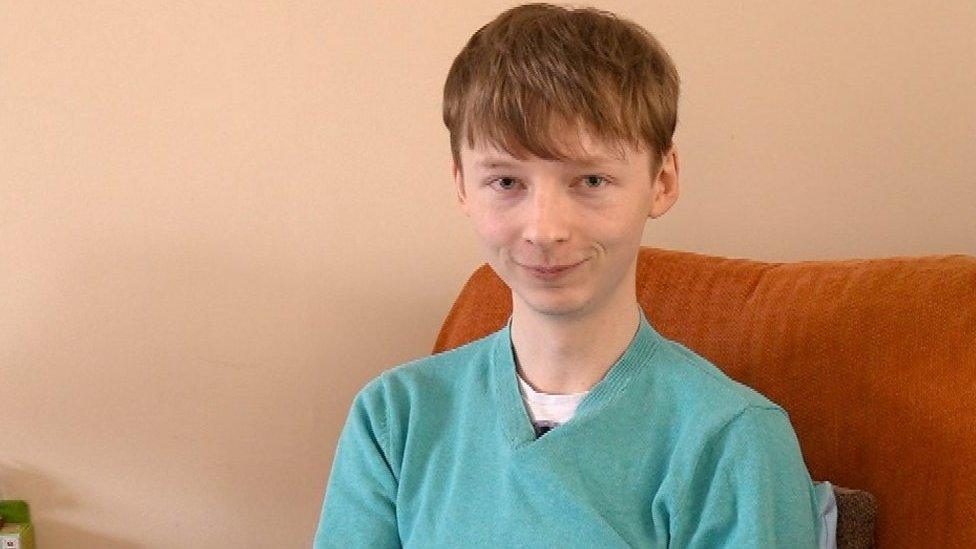Chronic pain 'like walking into burning hot oven', sufferer says
- Published

Emily Bristoe, who describes her chronic pain as "horrible", takes six tablets a day to cope with her symptoms
A woman has said her chronic pain feels like she has walked into a "burning hot oven" and "fallen down 10 flights of stairs", leaving it difficult to walk.
Emily Bristoe has been speaking out after a BBC survey found one in four people live with chronic pain.
The 35-year-old, from Hampshire, was diagnosed with rheumatoid arthritis four years ago.
She takes six different tablets a day to cope and will always be on medication unless a cure is found.
The retail manager worked full-time until recently when she was signed off as her condition flared up.
"My elbows have started to go a funny shape, my shoulders are so painful, every joint in my body hurts and it's hard to walk some days, it's horrible," she said.
"Imagine if you are walking and you walk into a burning hot oven, and then you fall over and you fall down 10 flights of stairs - that's every day," she said.

Pain nurse Alison Wickham described persistent pain as "a very, very complex issue".
An NHS spokesperson said: "Local NHS services should offer effective pain management for patients, and review their medication on an ongoing basis."
They added the NHS was recruiting more clinical pharmacists and trained staff, including offering alternatives to medication where appropriate.

What is chronic pain?
Persistent pain that lasts more than three months, despite medication or other forms of treatment
Secondary chronic pain is a pain which tends to be caused by another condition, for example, arthritis, endometriosis, cancer pain
Primary chronic pain is a condition in its own right - there is no known condition other than the pain itself - this can include conditions such as fibromyalgia or complex regional pain syndrome
Chronic pain is often confused with acute pain - a short-term pain such as a broken bone or a torn muscle

Alison Wickham, a pain nurse and team leader at Dorset Pain Management Service, said Dorset had a community-based pain management service, with doctors, pharmacists, occupational therapists, nurses and physiotherapists working together.
"We look at the biology of pain, we teach people about their condition, the complexities of science and physical function," she said.
"We enable people to be more active in their daily life, build in physical resilience, we look at activity management so they can do the things they really want to do.
"We look at mood and stress levels, sleep. How to stay in work and lead valued lives despite their pain, to take back control of their pain because we find pain controls them and we need to change that balance."

Follow BBC South on Facebook, external, Twitter, external, or Instagram, external. Send your story ideas to south.newsonline@bbc.co.uk, external.
Related topics
- Published11 May 2022

- Published11 May 2022
